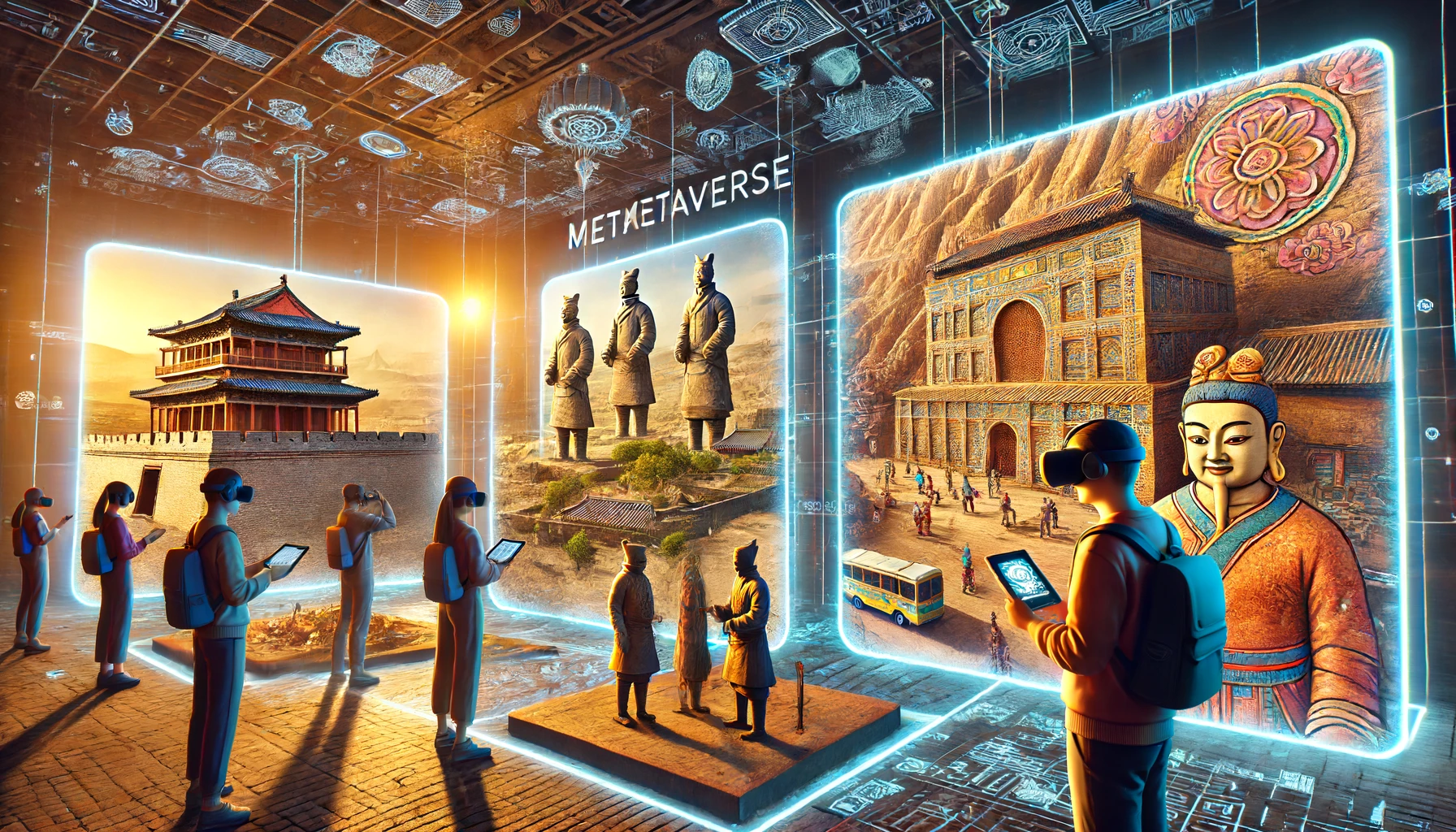Harnessing the Metaverse for Cultural Tourism: Enhancing the Silk Roads Experience

A study by the College of Architecture and Urban Planning, Fujian University of Technology, Fuzhou, China, Department of International Trade, China Financial Engineering Company Limited, Hong Kong explores how the Metaverse can promote cultural tourism along the historic Silk Roads. The Metaverse, a blend of virtual and physical realities made possible by technologies like virtual reality (VR), augmented reality (AR), and artificial intelligence (AI), has the potential to preserve and promote cultural heritage within the Belt and Road Initiative (BRI).
Exploring the Metaverse's Potential for Cultural Tourism
Researchers used surveys and interviews with tourists who experienced Metaverse applications related to the Silk Roads. They analyzed how features like immersion, avatar identification, and cultural authenticity influence tourists' perceptions and experiences. The study found that these features significantly affect tourists' satisfaction and their willingness to recommend the experience. When tourists feel immersed and connected to their avatars and find the cultural content authentic, they are more likely to have positive experiences and intentions to revisit or recommend the destinations.
Methodology: Combining Surveys and Interviews
The researchers adopted a mixed-methods approach, conducting surveys with 500 participants who had used Metaverse applications related to Silk Road cultural tourism in the past 12 months. They also conducted semi-structured interviews with a subset of 30 participants to gain deeper insights. The surveys measured participants' perceptions of Metaverse features, their attributions of their experiences, overall satisfaction, and future behavioral intentions. Structural equation modeling (SEM) analysis showed strong relationships between the Metaverse features and tourists' attributions. Higher levels of perceived immersion and avatar identification led to more positive internal attributions, meaning tourists felt their enjoyable experiences were due to their actions and choices within the Metaverse.
Insights from Interviews
The interviews provided rich, detailed insights into how tourists perceived and evaluated their Metaverse experiences. Participants highlighted the educational value of the Metaverse, as it allowed them to learn about the history, traditions, and diversity of Silk Road cultures in an engaging and interactive way. However, they also raised concerns about accessibility, inclusivity, and the long-term sustainability of Metaverse tourism. Ensuring that Metaverse development is inclusive and benefits local communities was seen as essential.
The study offers actionable recommendations for policymakers, destination managers, and technology providers. By understanding the factors that enhance tourists' experiences in the Metaverse, stakeholders can better design and manage Metaverse applications to promote cultural tourism. This can help achieve the BRI’s goals of connectivity, cooperation, and shared prosperity across regions.
Virtual Silk Road Cities: Bringing History to Life
The study also explored the development of Metaverse digital twin prototypes for several iconic Silk Road cities. These virtual reconstructions aim to provide immersive and interactive experiences that allow users to engage with the cultural heritage of these cities. For example, the digital twin of Xi’an includes detailed 3D renderings of the ancient city walls and the Terracotta Warriors, while the digital twin of Dunhuang features the Mogao Caves with their intricate Buddhist murals. These digital twins serve as testbeds for understanding how virtual environments can promote cultural heritage preservation and sustainable tourism. They offer new ways for tourists to explore and appreciate the rich history of the Silk Roads without the constraints of physical travel.
A Promising Future for Metaverse Tourism
The study concludes that the Metaverse has significant potential to enhance cultural tourism along the Silk Roads within the BRI framework. By creating immersive, authentic, and engaging virtual environments, the Metaverse can make cultural heritage more accessible and enjoyable for tourists. However, it is crucial to address challenges related to inclusivity, sustainability, and the digital divide to ensure that the benefits of Metaverse tourism are widely shared. This research lays the groundwork for future studies and innovations at the intersection of emerging technologies, cultural heritage, and sustainable tourism development.
- FIRST PUBLISHED IN:
- Devdiscourse










